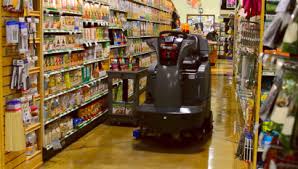
Breaking News
 US Deploys F-22 Fighter Jets to Southern Israel as Massive Military Buildup Continues
US Deploys F-22 Fighter Jets to Southern Israel as Massive Military Buildup Continues
 Elon Musk 'Legacy media lies relentlessly' from clip: It is the media that is racist'
Elon Musk 'Legacy media lies relentlessly' from clip: It is the media that is racist'
 Zohran Mamdani forces cops to pray to Allah (2nd clip) – He and AOC announce free health care...
Zohran Mamdani forces cops to pray to Allah (2nd clip) – He and AOC announce free health care...
 Why Can't We Thrive Like 1905?
Why Can't We Thrive Like 1905?
Top Tech News
 New Spray-on Powder Instantly Seals Life-Threatening Wounds in Battle or During Disasters
New Spray-on Powder Instantly Seals Life-Threatening Wounds in Battle or During Disasters
 AI-enhanced stethoscope excels at listening to our hearts
AI-enhanced stethoscope excels at listening to our hearts
 Flame-treated sunscreen keeps the zinc but cuts the smeary white look
Flame-treated sunscreen keeps the zinc but cuts the smeary white look
 Display hub adds three more screens powered through single USB port
Display hub adds three more screens powered through single USB port
 We Finally Know How Fast The Tesla Semi Will Charge: Very, Very Fast
We Finally Know How Fast The Tesla Semi Will Charge: Very, Very Fast
 Drone-launching underwater drone hitches a ride on ship and sub hulls
Drone-launching underwater drone hitches a ride on ship and sub hulls
 Humanoid Robots Get "Brains" As Dual-Use Fears Mount
Humanoid Robots Get "Brains" As Dual-Use Fears Mount
 SpaceX Authorized to Increase High Speed Internet Download Speeds 5X Through 2026
SpaceX Authorized to Increase High Speed Internet Download Speeds 5X Through 2026
 Space AI is the Key to the Technological Singularity
Space AI is the Key to the Technological Singularity
 Velocitor X-1 eVTOL could be beating the traffic in just a year
Velocitor X-1 eVTOL could be beating the traffic in just a year
Robot Janitors Are Coming to Mop Floors at a Walmart Near You

Robots are coming to a Walmart Inc. near you, and not just as a gimmick.
The world's largest retailer is rolling out 360 autonomous floor-scrubbing robots in some of its stores in the U.S. by the end of the January, it said in a joint statement with Brain Corp., which makes the machines. The autonomous janitors can clean floors on their own even when customers are around, according to the San Diego-based startup.
Walmart has already been experimenting with automating the scanning of shelves for out-of-stock items and hauling products from storage for online orders. Advances in computer vision are also making it possible to use retail floor data to better understand consumer behavior, improve inventory tracking and even do away with checkout counters, as Amazon.com Inc. is trying to do with its cashierless stores. Brain's robots are equipped with an array of sensors that let them to gather and upload data.
"We can take anything that has wheels and turn it into a fully autonomous robot, provided that it can go slow and stopping is never a safety concern," said Brain Chief Executive Office Eugene Izhikevich. "And it's more than just navigation. It is to robots what Android operating system is to smartphones."
Brain doesn't make its own hardware, focusing instead on developing software — BrainOS — that endows machines with autonomy in closed environments. At first, the machines were need to be operated by humans, who "teach" the layout of the space that needs cleaning. After that the robots can perform the task autonomously.
The robots, which look like a cross between a miniature Zamboni and a motorized wheel chair, already scrub floors at airports in Seattle, San Diego, Boston and Miami, Izhikevich said. Brain last month unveiled a smaller version of the machine developed jointly with SoftBank Group Corp.'s robotics arm and aimed at the Japanese market. At that time, Izhikevich said he's looking to deploy the robots for security patrol and deliveries inside big-box stores.



